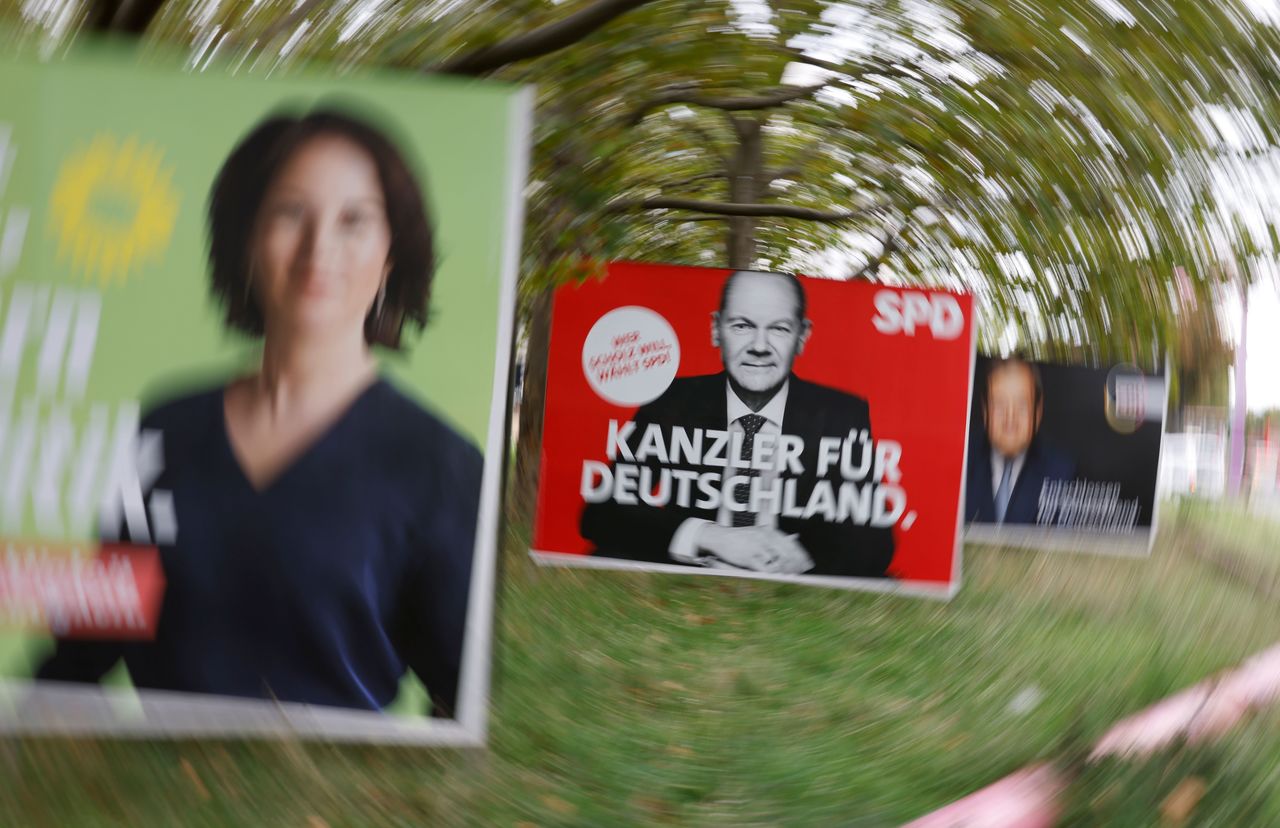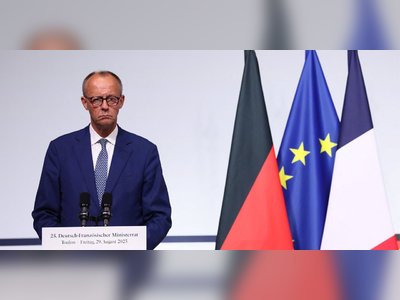
Germany's Coalition Government Considers Stricter Legal Measures Against Misinformation
The Christian Democratic Union and Social Democratic Party explore new regulations amidst concerns over 'fake news'.
Germany's new coalition government, consisting of the Christian Democratic Union (CDU) and the Social Democratic Party (SPD), is assessing the introduction of stricter legal measures aimed at combating the spread of misinformation and false claims.
A recent work document from the coalition reflects a commitment to addressing what they describe as 'fake news,' with an emphasis on safeguarding democratic processes.
The coalition's earlier exploratory paper outlined the threats posed by disinformation, particularly in the current geopolitical climate.
It asserted that the manipulation of information is detrimental to democracy and social cohesion, highlighting the urgency to adopt decisive actions against misinformation.
As part of its strategy, the coalition intends to implement the European Union's Digital Services Act (DSA) at the national level, which aims to enforce greater transparency and accountability among online platforms.
Reports from the working group on culture and media indicate a potential legal framework whereby the intentional spread of false factual claims could fall outside the protections of freedom of expression, allowing regulatory authorities to act against misinformation based on specific legal criteria.
Current legislation in Germany prohibits false statements only under limited circumstances, such as incitement to hatred.
The legal distinction between false factual claims and the right to express opinions remains a contentious issue.
Legal expert Volker Boehme-Neßler from the University of Oldenburg has noted that courts typically interpret the right to free expression broadly, complicating the enforcement of stricter definitions regarding misinformation.
The German government previously enacted legislation in 2020 aimed at countering online hate speech.
This law, passed by the Grand Coalition, mandates social media platforms to report and swiftly remove illegal content, including hate speech, threats, and other forms of extremism.
It also enhances the authority of law enforcement in tracking and prosecuting online hate crimes, as well as ensuring that user data is shared when necessary to identify offenders.
The European Union's Digital Services Act further aims to tackle illegal content, misinformation, and other harmful materials by imposing stricter rules on digital platforms.
These include requirements for transparency regarding content moderation practices and algorithmic disclosures, affecting major platforms such as Facebook, X (formerly Twitter), Google, and Amazon.
In a contrasting approach, Elon Musk, the owner of Twitter, has endorsed a broad interpretation of free speech in the United States, permitting previously banned users who spread false claims and hate speech to return to the platform.
U.S. Vice President J. D. Vance, during the Munich Security Conference in February, criticized European measures against hate speech, asserting that democracy hinges on the principle of free speech without constraints.
His comments were echoed by Alice Weidel, co-chair of the Alternative for Germany (AfD) party, who expressed similar views.
Media lawyer Joachim Steinhövel has raised concerns about the coalition's proposals, suggesting that the measures to curb public discourse could align with a wider governmental trend toward the criminalization of legitimate criticisms of the government.
He articulated his perspective through the social media platform X, reflecting growing tensions between regulatory efforts and free expression debates.
A recent work document from the coalition reflects a commitment to addressing what they describe as 'fake news,' with an emphasis on safeguarding democratic processes.
The coalition's earlier exploratory paper outlined the threats posed by disinformation, particularly in the current geopolitical climate.
It asserted that the manipulation of information is detrimental to democracy and social cohesion, highlighting the urgency to adopt decisive actions against misinformation.
As part of its strategy, the coalition intends to implement the European Union's Digital Services Act (DSA) at the national level, which aims to enforce greater transparency and accountability among online platforms.
Reports from the working group on culture and media indicate a potential legal framework whereby the intentional spread of false factual claims could fall outside the protections of freedom of expression, allowing regulatory authorities to act against misinformation based on specific legal criteria.
Current legislation in Germany prohibits false statements only under limited circumstances, such as incitement to hatred.
The legal distinction between false factual claims and the right to express opinions remains a contentious issue.
Legal expert Volker Boehme-Neßler from the University of Oldenburg has noted that courts typically interpret the right to free expression broadly, complicating the enforcement of stricter definitions regarding misinformation.
The German government previously enacted legislation in 2020 aimed at countering online hate speech.
This law, passed by the Grand Coalition, mandates social media platforms to report and swiftly remove illegal content, including hate speech, threats, and other forms of extremism.
It also enhances the authority of law enforcement in tracking and prosecuting online hate crimes, as well as ensuring that user data is shared when necessary to identify offenders.
The European Union's Digital Services Act further aims to tackle illegal content, misinformation, and other harmful materials by imposing stricter rules on digital platforms.
These include requirements for transparency regarding content moderation practices and algorithmic disclosures, affecting major platforms such as Facebook, X (formerly Twitter), Google, and Amazon.
In a contrasting approach, Elon Musk, the owner of Twitter, has endorsed a broad interpretation of free speech in the United States, permitting previously banned users who spread false claims and hate speech to return to the platform.
U.S. Vice President J. D. Vance, during the Munich Security Conference in February, criticized European measures against hate speech, asserting that democracy hinges on the principle of free speech without constraints.
His comments were echoed by Alice Weidel, co-chair of the Alternative for Germany (AfD) party, who expressed similar views.
Media lawyer Joachim Steinhövel has raised concerns about the coalition's proposals, suggesting that the measures to curb public discourse could align with a wider governmental trend toward the criminalization of legitimate criticisms of the government.
He articulated his perspective through the social media platform X, reflecting growing tensions between regulatory efforts and free expression debates.
AI Disclaimer: An advanced artificial intelligence (AI) system generated the content of this page on its own. This innovative technology conducts extensive research from a variety of reliable sources, performs rigorous fact-checking and verification, cleans up and balances biased or manipulated content, and presents a minimal factual summary that is just enough yet essential for you to function as an informed and educated citizen. Please keep in mind, however, that this system is an evolving technology, and as a result, the article may contain accidental inaccuracies or errors. We urge you to help us improve our site by reporting any inaccuracies you find using the "Contact Us" link at the bottom of this page. Your helpful feedback helps us improve our system and deliver more precise content. When you find an article of interest here, please look for the full and extensive coverage of this topic in traditional news sources, as they are written by professional journalists that we try to support, not replace. We appreciate your understanding and assistance.











